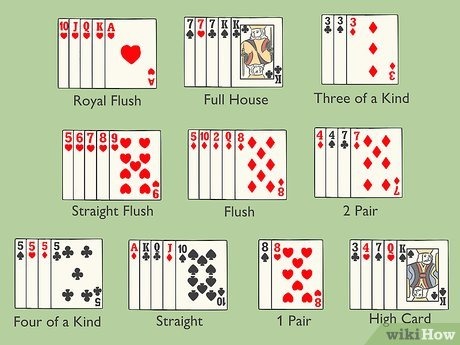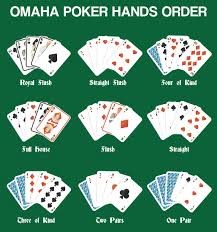A Comprehensive Guide to Omaha Poker
Omaha poker, an exciting variation of Texas Hold’em, offers a thrilling challenge for poker players who enjoy complex strategies and high-stakes play. With four private cards and five community cards, Omaha poker introduces an additional layer of decision-making, making it more intricate and fun. Whether you’re playing swerte99 or other platforms, understanding the basic structure, strategies, and variations of Omaha poker will help you maximize your winning potential.
1. What is Omaha Poker?
Omaha poker is a community card game where each player receives four private hole cards and five community cards are dealt face-up on the board. The goal of Omaha is to make the best five-card poker hand by combining exactly two hole cards with exactly three community cards. This unique rule makes Omaha distinct from other poker variations and adds complexity to the game. swerte99 players enjoy this challenge, as the combinations are more varied, leading to exciting, unpredictable hands.
2. Key Omaha Poker Variants
There are several popular Omaha poker variants, each with its own betting structure. The three most common variations include:
- Pot Limit Omaha: Players can bet up to the size of the pot. The betting can escalate quickly, making for intense action.
- No Limit Omaha: There is no cap on the amount you can bet, allowing players to go all-in at any time.
- Fixed Limit Omaha: The amount you can bet is predetermined and structured, with set increments for each round.
The gameplay in each of these variants remains the same, but the betting structures differ, which adds variety to the strategy and dynamics of the game.
3. How to Play Omaha Poker: A Step-by-Step Guide
Omaha poker follows the same general flow as Texas Hold’em with a few key differences. Here’s a step-by-step overview:
- Pre-Flop: After players receive their hole cards, betting starts with the player to the left of the big blind.
- Flop: The first three community cards are dealt face-up on the board. Another round of betting occurs.
- Turn: The fourth community card is dealt, followed by another round of betting.
- River: The fifth and final community card is dealt, followed by a final round of betting.
- Showdown: If there are multiple players remaining after the final betting round, the player with the best five-card hand wins the pot.
In Omaha, players must use exactly two of their four hole cards combined with three of the five community cards to make the best hand, a rule that sets Omaha apart from other poker variants like Texas Hold’em.
4. Omaha Betting Structures: Pot Limit, No Limit, and Fixed Limit
The betting structure significantly influences the strategy in Omaha poker. Here’s a closer look at each variant:
- Pot Limit Omaha (PLO): The maximum bet is the current size of the pot. For instance, if the pot is $100, a player can bet up to $100. This makes for aggressive play and larger pots, especially on later streets.
- No Limit Omaha: In this format, players can bet any amount up to their total chip stack, including going all-in. This increases the volatility and excitement of the game.
- Fixed Limit Omaha: In Fixed Limit Omaha, the bet sizes are fixed for each round. The betting increments double on the turn and river, which can make the game less volatile but also more predictable.
Understanding these betting structures is crucial to your strategy and helps you make more informed decisions at swerte99 or any other Omaha poker platform.

5. The Importance of Position in Omaha Poker
Position is crucial in Omaha poker, perhaps even more so than in other forms of poker like Texas Hold’em. The later you act in the betting rounds, the more information you have about your opponents’ moves. Players in “late” position can make more informed decisions about how to play their hands based on the actions of others.
For instance, being in position allows you to control the size of the pot. In contrast, when you’re “out of position,” your opponents have more control over the flow of the game. Players on platforms like swerte99 who master position can gain a strategic edge over those who don’t fully utilize it.
6. Bluffing in Omaha Poker: When and How to Use It
Bluffing plays a role in Omaha poker, but it’s much more nuanced than in other poker variants. Since Omaha hands often involve strong combinations, you’ll need to be selective with your bluffs. A bluff can work when you have a semi-bluff draw, meaning you have a hand that could potentially improve by the river.
For example, if you have a draw to a straight or flush, betting big on the flop can force opponents with weaker hands to fold. Bluffing in Omaha requires careful timing and a keen understanding of both your hand and your opponents’ potential hands, especially when playing onswerte99 where opponents may be familiar with advanced strategies.
7. Understanding Omaha Poker Hand Rankings
In Omaha poker, just like in other forms of poker, the player with the best hand wins the pot. The hand rankings are the same as Texas Hold’em and follow the standard poker hand rankings:
- Royal Flush
- Straight Flush
- Four of a Kind
- Full House
- Flush
- Straight
- Three of a Kind
- Two Pair
- One Pair
- High Card
Since players must use two hole cards and three community cards, the possible hand combinations in Omaha are more complex than in Texas Hold’em, and knowing the hand rankings is essential to determining whether your hand is strong enough to win the pot.
8. Tips for Playing Omaha Poker Successfully
If you want to be successful at Omaha poker, consider these essential tips:
- Play tight, aggressive poker: Omaha is a game of strong hands and high-action pots. Playing conservatively with premium hands in early positions can set you up for success.
- Don’t overestimate the value of drawing hands: Omaha offers many opportunities for draws, but not all draws are worth pursuing. Always weigh the pot odds before chasing a draw.
- Pay attention to the board: Since you must use exactly three community cards, the cards on the board heavily influence the strength of your hand. Always be aware of the potential combinations your opponents could have.
- Use position to your advantage: Play more aggressively in late position and consider folding weaker hands in early position.
By following these tips, you can improve your Omaha poker strategy and enhance your chances of success, whether you’re playing on swerte99 or any other poker platform.
9. Advanced Omaha Poker Strategies
For more experienced players, advanced Omaha strategies can further increase your edge.
- Playing post-flop aggressively: Since you have more hole cards than in Texas Hold’em, the post-flop action in Omaha is where the game truly begins. Be aggressive when you have strong draws or made hands.
- Avoid playing weak hands: In Omaha, it’s easy to get caught up in the action and play weak hands. However, weak starting hands should generally be avoided unless you’re in a late position and can play for cheaper.
- Mix up your play: Experienced players tend to notice patterns. By mixing up your playstyle, you can keep your opponents guessing and make it harder for them to put you on a specific hand.
10. Why Omaha Poker is Gaining Popularity
Omaha poker’s increasing popularity can be attributed to its depth and the thrill it offers. With multiple betting structures and the complex hand combinations, it’s a game that rewards skill and strategy. For players looking for a fresh challenge, Omaha offers an exciting change from Texas Hold’em, with plenty of opportunities to learn and grow. Sites like swerte99 provide a platform for players to hone their skills, learn the nuances of Omaha, and compete against players from around the world.
Whether you’re a seasoned poker player or new to the game, Omaha poker offers a dynamic and rewarding experience. By mastering the rules, understanding the betting structures, and honing your strategies, you’ll be well on your way to becoming a formidable Omaha player, whether on swerte99 or another poker platform.

